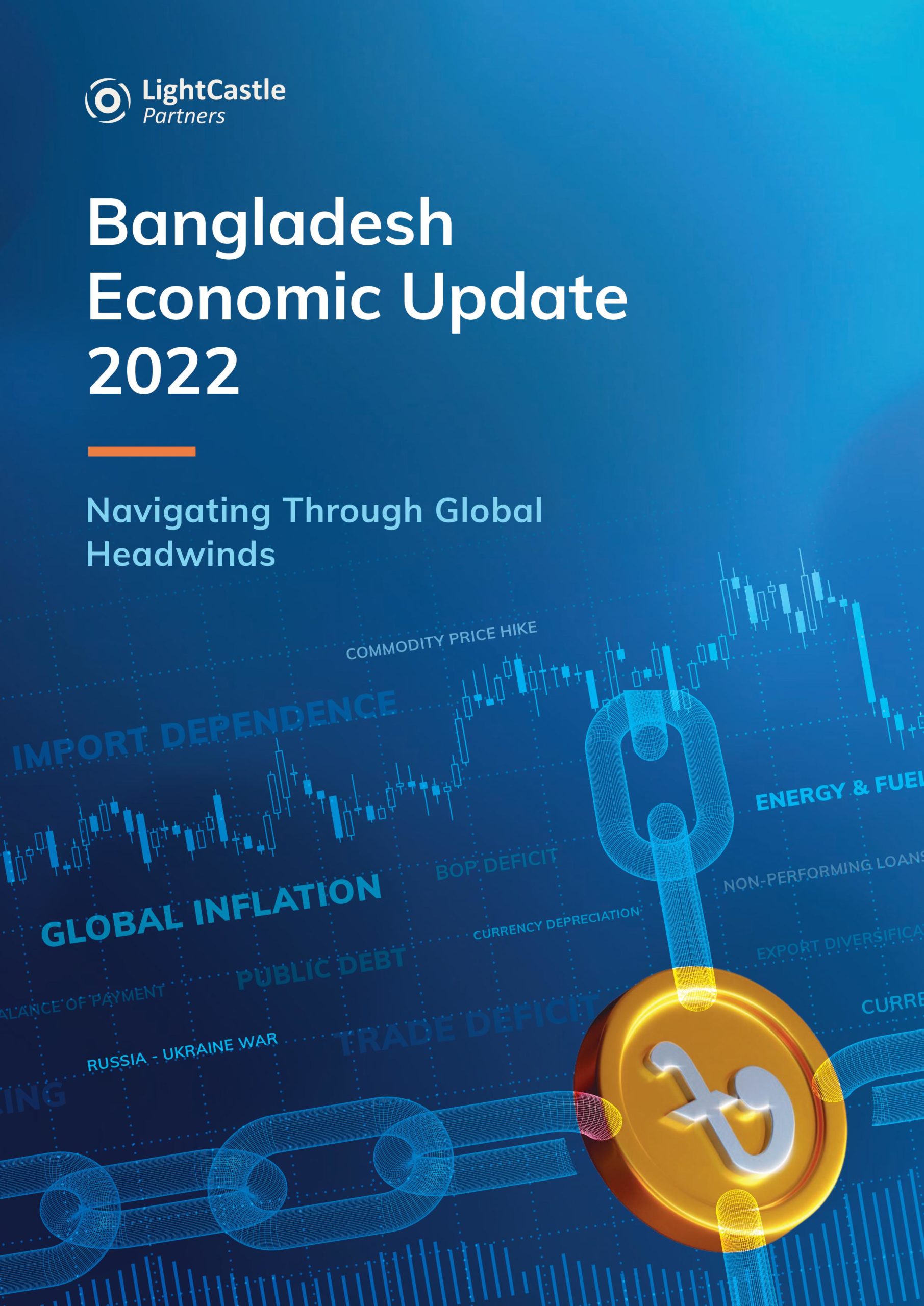GET IN TOUCH
- Please wait...

Global turbulence is having an adverse effect on the local context of Bangladesh. A cascade of challenges has hit the global economy since the beginning of 2022. As a result, each of these challenges has an impact on multiple aspects of the economic cog.
As COVID recovered slowly, the world witnessed another major conflict in the form of the Ukraine-Russian war. The war had a polarising effect on geopolitical stances among nations. The ban on Russia from the SWIFT system made it more difficult to trade with the country. The dislocated supply chain and commodity crisis forced western countries to tighten their monetary policies to strengthen their currencies.
As a result, Bangladesh witnessed a rise in commodity prices. The prices for gas, fuel, oil, wheat, soya bean, and fertilizer went up due to global shortages. This had a domino effect on the overall economy of Bangladesh. Prices of everything else started to rise as the cost of production, transportation and services increased. Thus, consumers are suffering from inflation’s effects.
On the other hand, the rising import bill had tremendous pressure on the forex reserves as the global currency market became extremely volatile. The Central Bank of Bangladesh tried to cushion some of the impacts but later resorted to devaluating the Bangladeshi currency. The cost of each dollar peaked at an unprecedented level of almost BDT 120 in the kerb market in August. The rate fluctuated in the following months, reaching the official rate of BDT 105. In mid-September, Bangladesh Bank allowed a floating exchange rate for the US dollar.
Despite the government’s efforts, a series of interconnected challenges are complicating the situation. Tackling inflation is proving difficult due to the supply shortage of several necessary commodities at the global level. At the same time, the depleting forex reserves and the USD supply shortage in the global market are responsible for currency devaluation. This in turn increases the cost of imports and raises inflation in the local market. Bangladesh is trying to pull its demand for imports to tackle inflation. Power cuts, banning foreign trips for government officials, reducing open hours for shops, introducing daylight saving time, prioritizing most crucial megaprojects, and deprioritizing others have been some of the major initiatives of the government.
However, the government is compelled to raise the prices of gas, fuel, and electricity and is unable to control the price hike of commodities. The currency would take time to stabilize. Moreover, the servicing solutions for domestic and foreign debt are still in process while debt is on the rise.
These are the major concerns of Bangladesh, and the near-term strategies will be devised based on a focus to tackle all these challenges. The rigorous strategies and countermeasures will ultimately impact the bottom lines of various industries, and people’s living standards and determine the path for our growth journey.
 |
To learn more about the current status of the Bangladesh Economy
|
Our experts can help you solve your unique challenges
Stay up-to-date with our Thought Leadership and Insights